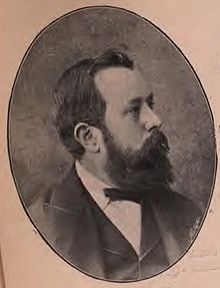William Alexander Hunter (8 May 1844 – 21 July 1898)[1] was a Scottish jurist and Liberal politician.

Hunter was born in Aberdeen, the son of James Hunter, a granite merchant, of Aberdeen. He was educated at Aberdeen grammar school and university. He entered the Middle Temple, and was called to the English bar in 1867, but then was occupied mainly with teaching. In 1869 he was appointed professor of Roman law at University College, London, and in 1878 professor of jurisprudence, resigning that chair in 1882.[2][3]
Hunter's name became well known during this period as the author of a standard work on Roman law, Roman Law in the Order of a Code, together with a smaller introductory volume for students, Introduction to Roman Law.[2]
After 1882 Hunter took up politics and was elected to parliament for Aberdeen North as a Liberal at the 1885 general election.[4] In the House of Commons he was a prominent supporter of Charles Bradlaugh; he was the first to advocate old age pensions, and in 1890 carried a proposal to free elementary education in Scotland. In 1895 his health broke down;[2] he resigned his seat in Parliament on 24 April 1896 by taking the Chiltern Hundreds.[5]
References
edit- ^ Leigh Rayment's Historical List of MPs – Constituencies beginning with "A" (part 1)
- ^ a b c Chisholm 1911.
- ^ Debretts Guide to the House of Commons 1886
- ^ Craig, F. W. S. (1989) [1974]. British parliamentary election results 1885–1918 (2nd ed.). Chichester: Parliamentary Research Services. p. 491. ISBN 0-900178-27-2.
- ^ Department of Information Services (9 June 2009). "Appointments to the Chiltern Hundreds and Manor of Northstead Stewardships since 1850" (PDF). House of Commons Library. Archived from the original (PDF) on 6 February 2011. Retrieved 30 November 2009.
- This article incorporates text from a publication now in the public domain: Chisholm, Hugh, ed. (1911). "Hunter, William Alexander". Encyclopædia Britannica. Vol. 13 (11th ed.). Cambridge University Press. p. 945.
External links
edit- Hansard 1803–2005: contributions in Parliament by William Hunter
- Works by William Hunter at Project Gutenberg
- Works by or about William Hunter at the Internet Archive
- Works by William Hunter at LibriVox (public domain audiobooks)